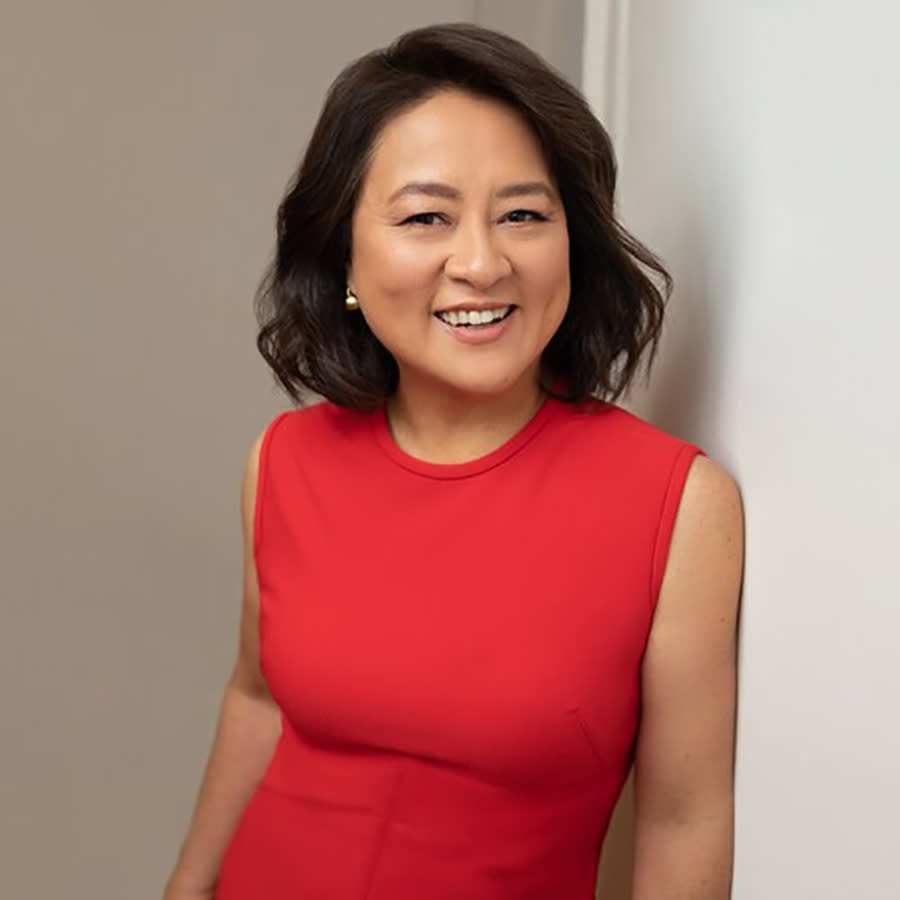Girl Scouts' first Asian American CEO credits her diverse girlhood
Unlike many of her predominantly white peers, Sofia Chang, the new CEO of the Girl Scouts, had an unique upbringing, spending much of her childhood working at her parents’ Chinese restaurant in Philadelphia. Though she was exposed to elements of real life that were at times uncomfortable, she said the experience left a lasting impression.
“There were assumptions that were made about me because of where I worked, or what my parents did, or what I looked like,” Chang said. “And I think that experience of, what I would call 'exclusivity,' really sort of pushed me to have an even greater desire to create inclusivity.”

Chang, who came to the U.S. with no English skills at 10 years old, became the first Asian American to hold the leadership position in the Girl Scouts’ 110-year history. Having officially started her role on Thursday, Chang said her mission is to build the inclusive environment she’s always wanted to provide for others.
“Much of what I want to accomplish is rooted in giving everyone the access to more opportunities so that these girls can realize their dreams,” Chang said.
Chang, who said she entered the world of Girl Scouts through her daughter, explained that she hopes her presence in a prominent leadership role can help broaden the realm of possibility for young girls. And while the organization has, in the past, struggled to recruit girls of color, Chang said she hopes to ensure “that our programs are developed in a way that is appealing and interesting and really serves all girls.”
“At the end of the day, we know that there are more and more opportunities that are available to girls today, but not everyone has access to them,” she said. “And I think that Girl Scouts can play an important role in that.”
Chang, a former HBO executive, said she credits the skills she developed while growing up in an Asian immigrant family with leading her to the Girl Scouts. Chang, who was born in Brazil, spent the first few years of her life living with grandparents. Her mother worked as a hostess and her father as a dishwasher for a Chinese restaurant in the U.S. After Chang’s parents had saved enough money to open their own small establishment, she and her sister joined them. The pair subsequently spent their formative years navigating a new life in the U.S., while using any free time after school or on weekends to help their parents out, making wontons and rolling egg rolls, “the whole bit,” she said.
“None of us spoke English. My sister and I quickly learned out of necessity,” Chang said. “We found ourselves translating for our parents across multiple interactions — everything from getting a loan from the bank, calling school, speaking to my mother’s oncologist. Just being scrappy.”
Though the responsibilities were a lot for a teen to take on, Chang said it made her well positioned for any challenges that arose in adulthood.
“So much of that really gave me resilience. And it taught me how to not be afraid and it allowed me to take risks and also to learn how to recover from disappointment,” she said.
But while her time at the restaurant gave her an entrepreneurial spirit, and planted some seeds of interest in marketing, she said that she knew that coming from a working-class background, there were barriers to some of the careers she hoped to pursue.
“If I had the dream of opening my own restaurant, then I had an incredible network for that, but I didn’t have the network to go into corporate America, if you will,” Chang said.
It was in her pursuit of an advertising career while she was attending the University of Pennsylvania that Chang said she learned the value of intentionally helping others who may not have a built-in network for mentorship or other opportunities.
“I was so fortunate in that so many people were so willing to help me,” Chang said. “I met an alumna and I had just expressed to her that I was interested in advertising and she immediately put me in touch with her two friends who are running this ad agency on Madison Avenue. And that led to my first job in advertising.”
Later on at HBO, where she spent two decades, Chang said she only continued to see how critical mentorship and creating access really are, particularly for women who face more obstacles to leadership than others.
“I had the benefit of working with a number of women who were trailblazers. They broke through all sorts of ceilings, and then they helped me break through some of my own,” Chang said. “It was really important for me to see the possibilities so that I could see them for myself.”

